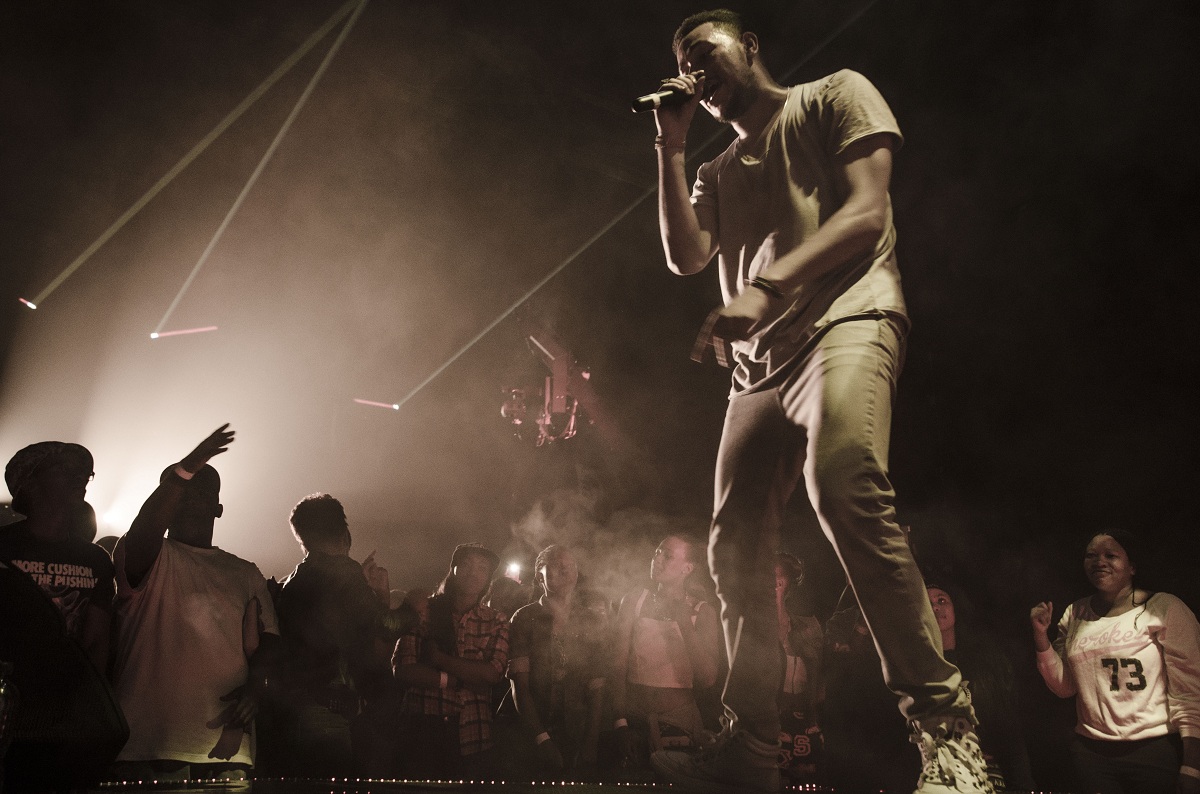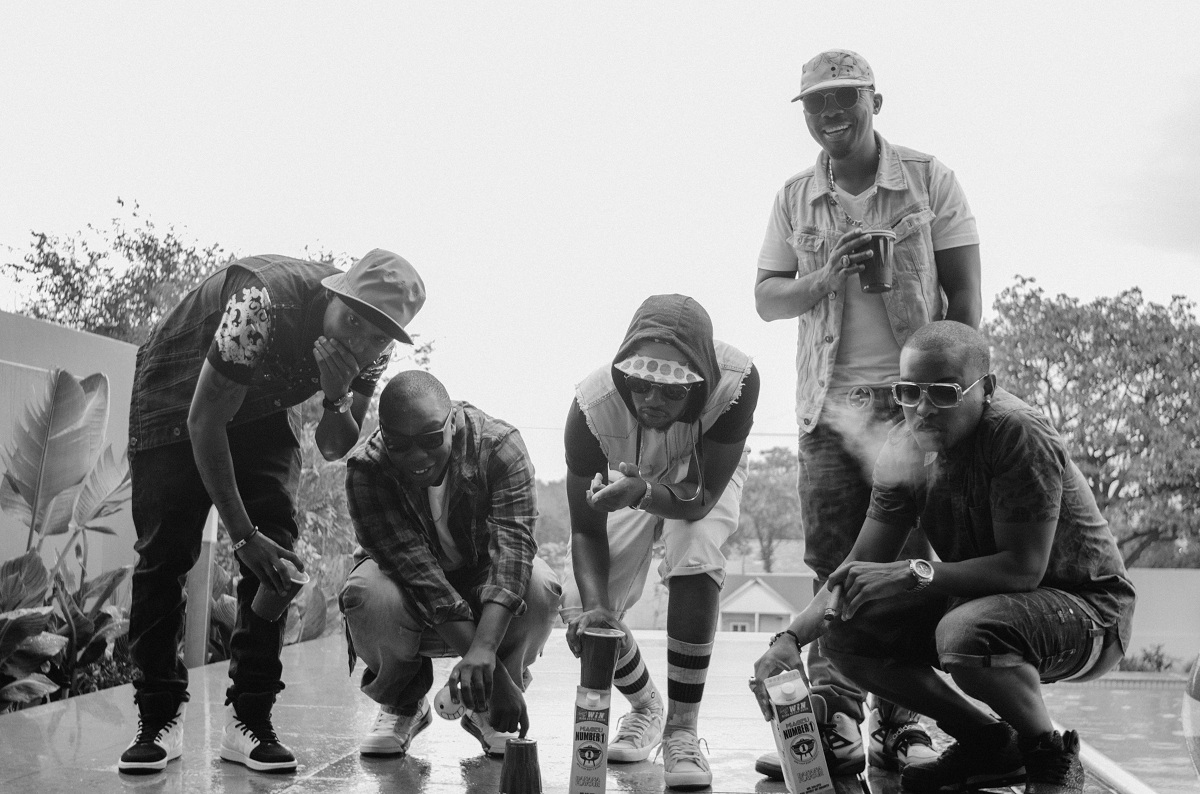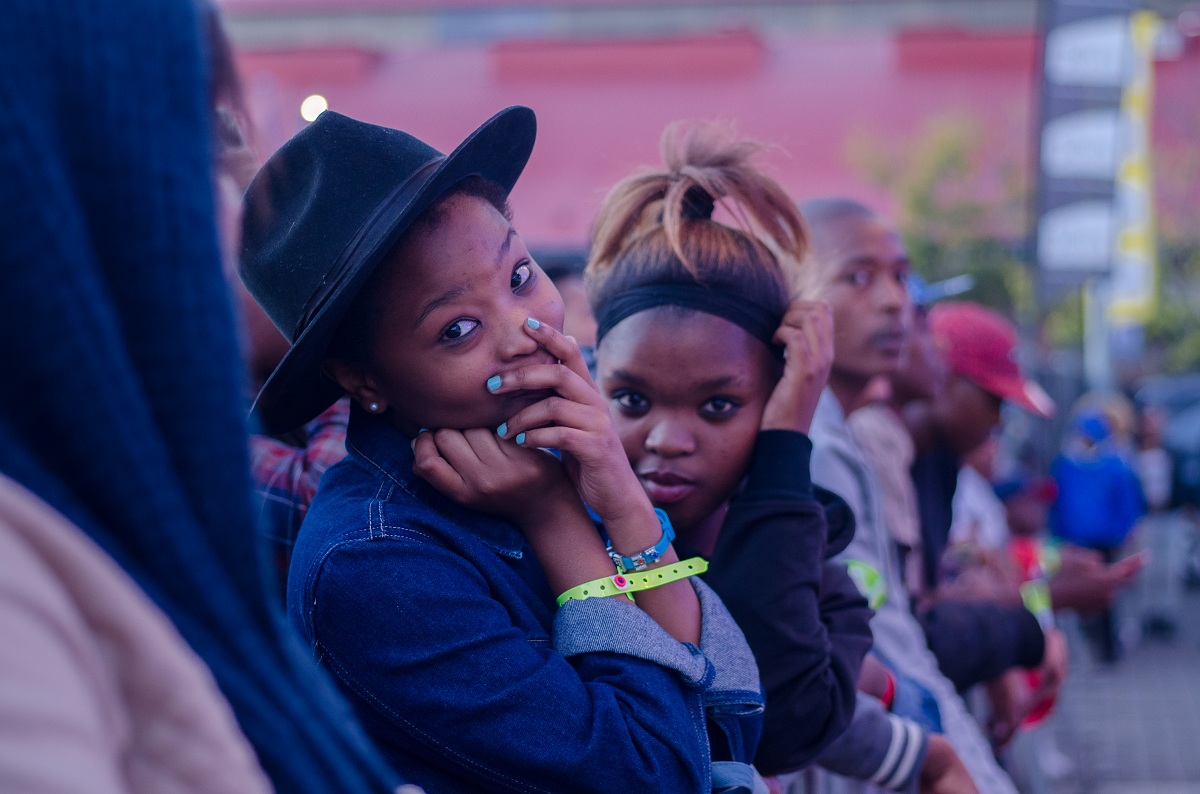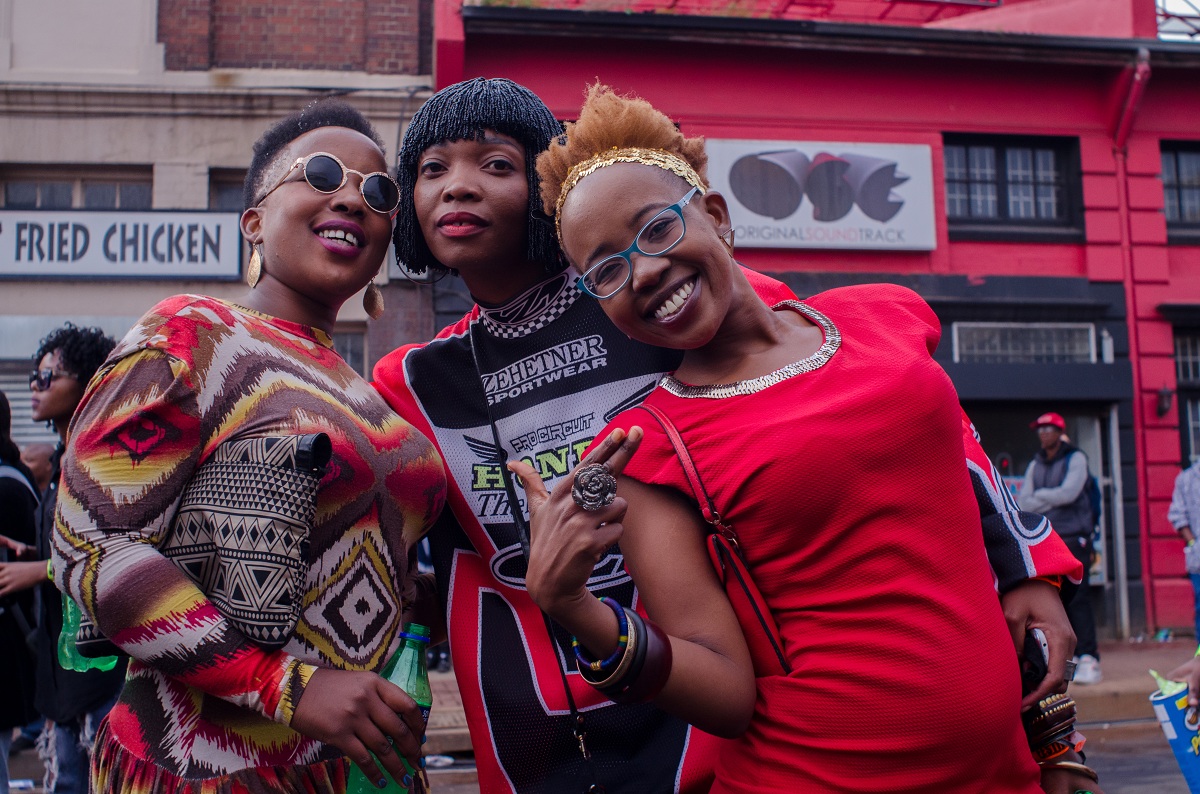Once groups like POC used to rap like they meant it and who gave a shit if they offended. But are their successors, obsessed with endorsements and sponsorship opportunities, just a bit vanilla?
Shaheen Ariefdien arrives on the second floor of the Cape Sun Hotel shortly after midday on Saturday. It’s a day following Prophets of Da City’s (POC) appearance at the sixteenth annual Cape Town International Jazz Festival; three since he flew in from Canada where he now resides with his wife; and about twenty minutes into what’s supposed to have been an Urban Masterclass workshop facilitated by POC.
He’s a vast cat who’s interested in a range of topics; confining our conversation to just beats and rhymes seems rather lazy.
He looks a tad disoriented, due in part to the jet lag he’s still experiencing. But it could also be that he’s just found out the workshop’s been delayed and is stuck in that floating state where we all go to figure out what to do with our newly-found free time. I introduce myself as a writer and ask whether he’s got time to break bread about this, that and the third. He’s a vast cat who’s interested in a range of topics; confining our conversation to just beats and rhymes – and breakdancing and deejaying and graffiti, as one does – seems rather lazy.
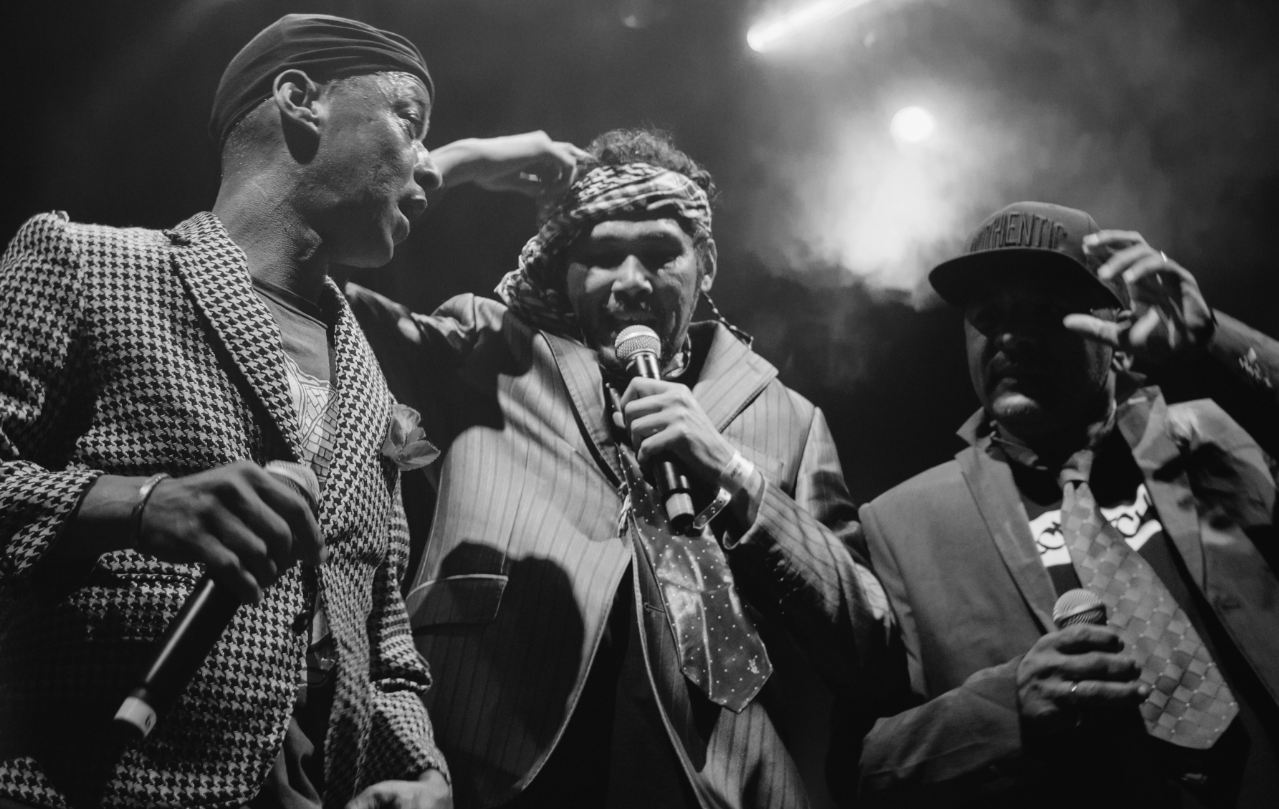
He agrees. We both look around for a place to sit, settling for a couch located to the one side of a narrow walkway and away from the commotion in the area. As a rap group, POC served insidious lyrics and subversive beats to South African hip hop from the late eighties when they started making music under the tutelage of Shaheen’s father, Issy Ariefdien of Pacific Express acclaim.
They grew increasingly politicised due to a combination of factors: an embrace of the ethos preached by the Universal Zulu Nation, of which party-starter slash vinyl-archeologist Afrika Bambaata was founder; the messages of black pride which hip-hop groups such as Public Enemy and X Clan were teaching; the nervous condition and salient paranoia under which the Cape Flats and pretty much all hoods in Mzansi operated. They managed to have their music banned by SABC regulators who found them too militant to ever be given a chance at anything.
Rap is now more up-market suburban mansion than downtown corner store in its outlook.
‘These guys were speaking about the state of the nation, inequality, race and social ills that existed and still exist in Cape Town today. I am their legacy. I am their student. Born before freedom. I am their heritage. I hold the torch. I carry on tradition & follow in their footsteps because there is still much truth to be revealed,’ the emcee wrote on his Facebook wall, part of a caption accompanying a picture of him holding a cassette copy of Age of Truth, the 1993 album which got banned by the censors at SABC.
South African hip hop, in its current form, stands in direct opposition to the principles of self-knowledge, self-determination and collective organisation once demonstrated by groups like POC. I mean, the big news among rap fans in the country was why Cassper Nyovest’s freestyle got pulled from Tim Westwood’s crib sessions. The rapper, born Refiloe Phoolo, is well known in the country, a feat he’s achieved over roughly three years by building an online buzz the money people couldn’t ignore and by touring and performing relentlessly in and outside of the country. He recorded the session while on a club tour in the UK recently.
Rap is now more up-market suburban mansion than downtown corner store in its outlook. Corporate sponsorships have in part shaped who gets to be on the roster at live shows and who gets endorsements. Radio programmers seem unbothered that their playlists aren’t reflective of the diversity of rap music on offer in the country, leading to a handful of artists benefitting while everyone else either waits in line or exists in a realm soundtracked by indifference from the steadily-growing number of adherents. With this increased attention comes increased paranoia from those who perceive themselves to be Oga’s at the top.
AKA, another well-known rapper whose entry came ten years ago via a trio named Entity and who’s built a respectable following through a combination of hard work and putting on outstanding live performances, regularly refers to himself as Doro/Don Mega, a title doubtless inspired by West African mainstay and leading producer, Don Jazzy.
His uncanny ability to use his high count of Twitter followers to his advantage – keeping his followers entertained with regular jabs he throws at his perceived nemesis Cassper Nyovest (and just about anyone in the rap industry who has a different outlook to his) – is legendary.
http://www.youtube.com/watch?v=3CFlPydnZ6E
A few weeks back he released Composure, a dig at Cassper, and at producer Anatii with whom he’d done a song previously. It trended on Twitter upon its release, in the fashion of all his previous singles, especially the last six (and counting) from his current, gold-certified album Levels. ‘Why you gassin’ dawg/ why you comin’ to my table without askin’ dawg/’ demands AKA on the song’s opening lines. There’d been a fascinating series of events leading up to its release. A club incident where he went up to Cassper Nyovest’s table and slapped him; and another beef he instigated with rapper iFani, dismissing his claims that he went gold on the first day of his album release as pure lies.
Cassper’s ever the yawn positioning himself as the rap version of a friendly ghost.
The general consensus is that while AKA’s efforts are commendable, the diss has come late – almost a year and some months too late – since their egos clashed in the lead up to both their album releases in 2014.
Cassper, ever the yawn positioning himself as the rap version of a friendly ghost (AKA rubbishes his nauseating combination of humble and flashy, saying ‘I know you play like you’re humble, we’re just one and the same/ you’re trying to stay out of trouble, I’m just stuck in my lane’), went to social networks and asked his fans whether he entertain the affront. He then let time pass before releasing two songs; one a primer called #Ashes2Ashes :428 To SA Freestyle recorded while on his UK dates, and another called Dust to Dust released while this article was getting finished.
https://www.youtube.com/watch?v=Z_js98TCD6w
‘It sure does sound like Cassper is in a fighting stance landing a few soft jabs before he prepares to unleash a haymaker,’ wrote the African Hip-Hop Blog about Ashes2Ashes. The latter song calls out rap collective Cashtime Life, whom Cassper accuses of siding with AKA, before going in and taking battle rap-level personal jabs at AKA, cocaine habit, baby mama drama and all. It plays like a shoddily-assembled gossip rag. A tabloid!
Through it all I found myself thinking: ‘Sure Cass, but what’s your God got anything to do with it?!’
Here’s a guy who’s liked by masses; who goes to Harare, Blantyre and Maseru and gets massive reception; and who has a platinum-certified debut album to his name and yet still positions himself as the underdog. Like, grow the fuck up bro! Ashes2Ashes follows a trajectory similar to that of Beef, a song Cassper following the publishing of MTV Base’s Top 10 rappers in South Africa list in 2014. He later went on apologise for some of the things he said in it. Who does that?!
It’s hard to not think of mainstream South African hip-hop artists as mere pop idols cashing in on celebrity glory.
More pressing though, is how AKA and Riky Rick (whose name got mentioned in Composure and who released a limp peace-and-love song in response) could use beats without prior agreement with their original producers and not be required to explain why.
Originality is subjective, but outright biting isn’t only wrong, it stands against one of the founding precepts of emceeing: Thou shalt not bite! It’s therefore hard to not think of mainstream South African hip-hop artists as mere pop idols cashing in on celebrity glory and doing their best to forget hip-hop culture’s principles while still appropriating its elements, as though the movement were a free-for-all pot where feral cats could just dig, go roam, fuck up, and come back again when the world has worn them out.
And it’s not new.
Cassper Nyovest, in conjunction with production house Studio Space pictures, released two videos which bit wholesale from Kendrick Lamar and Big Sean’s videos. He made it a triple strike recently when he released Mama I Made It, a shameless rip of Drake and Soulja Boy’s We Made It.
One imagines that these routine bites are allowed because he knows that his supporter base is of the gullible, impressionable variety.
Music as a craft has taken a backseat; it’s used ‘as a means to get rich quick by fooling people with empty emotional pop garbage sold as music with feeling.’
Television has made it almost too easy to be mediocre. There’s a template; just follow it! In an industry which prides itself on being fourth-grade versions of the real deal, it’s not only a wonder that mindless drivel passes off as art, but that serial perpetrators get rewarded for it.
Nothing new there.
‘That’s the problem with you new school cats/ took your whole style from Malumkoolkat,’ says AKA on Composure in reference (and reverence) to Okmalumkoolkat, one of the few innovators in the mainstream. The Durban native, born Smiso Zwane, has enjoyed a slow but fulfilling journey from the doldrums of his city’s rap and dance scenes (Durban is well renowned for its love of house and Kwaito music), to Johannesburg where, alongside collaborator Doctor SpiZee he put out a series of mixtapes and loosies which would influence the current crop of emcees coming out. Okmalumkoolkat’s too real, too far-out to endure the straitjacket consumerism of rap. Placing him in the same category as ‘the rest’, regardless of his public profile, feels lazy.
He wrote an impassioned Facebook post following the now-infamous MTV Base ‘list’: ‘I introduced Primustof, Digital Maskandi and New Age Kwaito when I dropped the Dirty Paraffin Greatest Hits mixtape four years ago. The whole industry is only catching up now and some are claiming this as theirs,’ he wrote. He lamented the culture of biting and renewed his vow to be an innovator. He said that music as a craft has taken a backseat; that it’s used ‘as a means to get rich quick by fooling people with empty emotional pop garbage sold as music with feeling.’
‘Its a joke. We will change all of that. One track at a time. One show at a time,’ he says.
South African hip hop is full of innovators like Okmalukoolkat. Listicles going into the hundreds can be written about soldiers on the frontline of their own mini-revolutions. Their selflessness and attention to detail inspire hope; their willingness to forge cross-cultural hyper-realities using hip hop as a tool, warrant the utmost respect. Without wide-reaching platforms for these artists to channel their voices, though, consumers are faced with a narrow set from which to choose. This set has, for the most part, failed to provide a reason for anyone else outside of South Africa (and a few other parts of the continent where the artists have toured) to sit down and take notes.
So, as it stands, there are too many stakeholders in the South African hip-hop pie. It’s a great moment, one everybody who’s involved in the scene has been wishing for. Ten years ago, when the careers of Khuli Chana, Proverb, Pro Kid and AKA were starting off and rap groups such as Skwatta Kamp were at their peak; and a rapper with an afro who had Busta Rhymes inclinations fused into his catchy, comical hood raps released the eponymous Pitch Black Afro, followed by the extended metaphor LP Stylin’ Gel. He went platinum off of it, the first South African solo rapper to achieve such a feat.
Rumour-mongering and the pursuit of celebrity have defined dialogue around South African hip hop while the task of making great music lies ignored by the wayside. It’s time for this to change. The current climate isn’t sustainable. If the rap industry stays sleeping, the bubble will soon pop.


